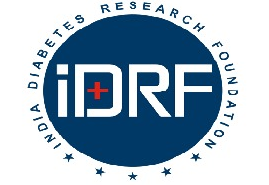Primary prevention of diabetes is a major strategy to combat the rising global burden of diabetes and is of utmost importance in developing countries such as ours. However, these strategies have to be formulated considering the cultural, socio-economic aspects and structure of the health care system.
Today science has progressed to the extent that not only can diabetes be identified early but we can detect subjects even with pre-diabetes (those with the risk of developing diabetes). The main components of identifying high-risk individuals are positive family history, obesity, especially central adiposity (big tummy), sedentary life habits, and stress. Studies including ours have shown that diabetes can be prevented by lifestyle modification in people with prediabetes. This has changed the strategy in tackling diabetes in public health.
Indian Diabetes Prevention Programmes IDPP 1 and IDPP 2 have been the pioneer studies from South Asia which have shown that moderate, but consistent lifestyle modification is effective in preventing diabetes in high-risk subjects. These studies have also highlighted several peculiarities in the Indians with respect to the risk factors and the response to therapeutic interventions. Among Indians, a new translation research project is now in progress to identify a cheaper and widespread communication strategy such as SMS by cell phones, to motivate persons with high risk for diabetes to adhere to the LSM strategies.

